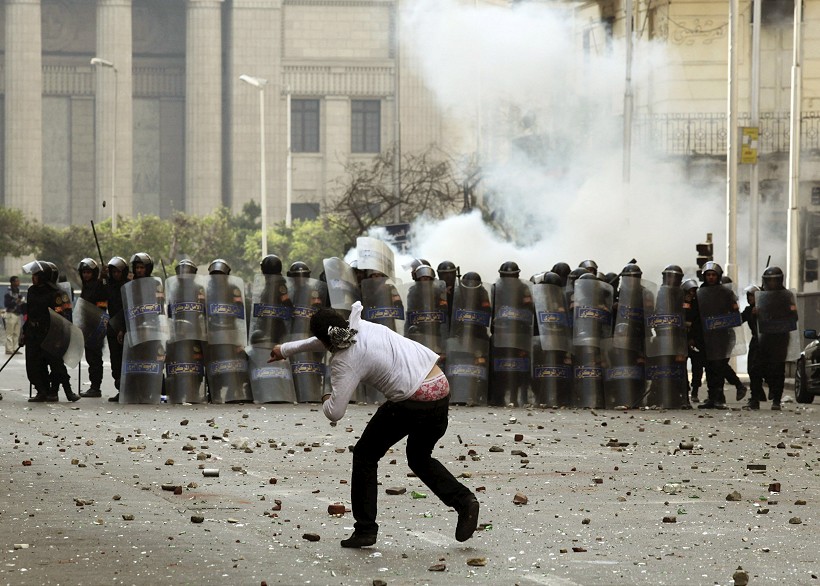I feel uncomfortable with the new wave of descriptions and words which slip into people’s minds through the small screen and from the new books that are being peddled around.
They all revolve around one point—that the Egyptian revolution was not spontaneous, but was somehow manufactured by faraway hands, and by powerful minds, conspirators who worked for many years before Egyptians took to Tahrir Square. This explanation is based on an old saying which goes, “There is more to it than meets the eye.”
Before anyone feels that I may, even for one moment, be feeling protective of January 25, or that I am defending its purity and its reputation, I point you to the fact that the reformists—and I am one of them—are incapable of seeing the good in revolutions. Rather, I accept them just as I accept storms, hurricanes and earthquakes. I accept them just as I accept history.
However, it is best to be mindful of the great enthusiasm which Egyptians showed for the events of January 25, 2011 and June 30, 2013, and their adoption of the idea that the noblest among them, who are the youth, were the ones who carried out the two revolutions and that these youths were the symbol of honor and purity.
Bearing this in mind, it is risky to the psychological health of Egyptians for someone to come and tell them: “These youths were nothing but puppets in a political game! The strings of the revolution were weaved many years ago in textile factories belonging to American and Israeli intelligence!” This does not mean, of course, that these youths were aware that there was someone moving them—no, not at all—because apparently Western parties drew the path for them, which they walked.
I know of course that the conspiracy mentality prevails over most of those who are interested in the Egyptian issue, and that they are searching for a foreign intelligence officer lurking behind every tree, but the real danger is that Egyptians may feel total despair and lose all hope.
Let me start with what I have said on more than one occasion in my explanation of the revolution, and my reference was the idea expressed by the American thinker Eric Hoffer, that in a dictatorial state, a revolution takes place if two conditions are met: if people’s living conditions relatively improve and if the grip of the security forces lessens at the same time. Therefore, you will notice the street leaders during a revolution are the educated, well-off youth.
The revolution has destroyed Mubarak’s rule not because of its strength, but because of the weakness of the regime, its ignorance and its broken-down structure. Not even the best intelligence services in the world would have been able to forecast the weakness we saw in the security forces, which collapsed quickly. What happened, and is still happening in Egypt, did not need planners from the outside.
Even the tales about the breakouts from prisons and police stations must be taken with a pinch of salt, as this was most likely planned by the Muslim Brotherhood and their allies in Gaza and Sinai just hours before it took place.
It is natural that when a crisis erupts many rush to benefit from it. The miserable do not revolt, they live on their misery away from our sight. A revolution is carried out by people when their conditions improve and they start wanting more. No one planned the Egyptian revolution, no one wants to divide us, spread sedition among us, please us or pamper us. All that is happening is of our own making.
